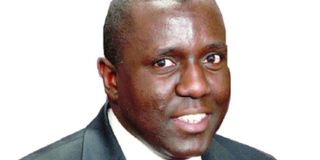Why the Ham Enterprises decision is causing mayhem

One of the properties on Makerere Hill Road, which DTB had indicated it will sell to recover part of the Shs41b. PHOTO /FILE/NMG
What you need to know:
- BoU through the Governor Tumusiime Mutebile has distanced itself from regulating foreign banks or agency agreements described in the judgment of the High Court.
- Karoli Semogerere: Amin perhaps ran the most nationalistic government in Uganda’s history.
Last week’s decision by Justice Peter Adonyo, the Head of the Commercial Court in the Ham Enterprises versus DTB 1 and DTB 2, is still fresh and raw. It comes on the heels of the yet to be appealed decision in Crane Bank (in receivership) versus Sudhir Ruparelia and others.
This decision caused ripples shortly after another decision where the former head of the Commercial Court Justice David Wangutusi ruled against Bank of Uganda the official receivers to the effect that they lacked capacity to bring a lawsuit due to the provisions of Section 96 of the Financial Institutions Act. This decision on June 30 was upheld by the Court of Appeal.
These two decisions turned on points of law. In the Ham case, the court accepted the borrower’s contention that Diamond Trust Bank Kenya “illegally” advanced funds and secured mortgages in Uganda without either a financial institution’s licence or an agency agreement with Diamond Trust Bank Uganda approved by Bank of Uganda.
In the Crane Bank decision, in which more than 10 times more money is at stake, Shs397b, the Court ruled that while in receivership, Crane Bank was shielded from lawsuits and lacked capacity to sue.
BoU through the Governor Tumusiime Mutebile has also responded distancing itself from regulating foreign banks or agency agreements described in the judgment of the High Court. In fact, he has stated that these arrangements are governed by the law of contract.
Interpretation of the law by administrative agencies is often given deference by the courts applying the Chevron principle, but this interpretation came after court had pronounced itself.
Higher returns and higher risk appetite drive many finance houses and foreign banks to try their luck in countries strapped for credit where they can treble their returns and collect more in fees and penalties from borrowers.
Some offer facilities to commercial banks or pooling arrangements and a few lend directly to clients.
This week, the Bank of England asked banks in its remit to prepare for negative interest rates, a situation which partly explains this appetite and the rapid growth in offshore credit.
Poor countries desperate for cash have been forced to lift all capital controls to allow swift repatriation of foreign currency, this is a lifeline. Big time credit sources like China have imposed further conditions on risky borrowers requiring escrows funded by prepaid interest of several months’ worth in the central banks to meet current and future debt obligations.
In this environment of necessity, the first thing to suffer are the laws and prudential guidelines to regulate lending. In 2019, two years after the closure and sale of Crane Bank, two more commercial banks entered the “watch list”. An equal number have changed owners.
Being on the watch list requires bank shareholders to raise inordinate sums of capital to boost their reserves at the Central Bank. But often, it’s simply a waiting game, especially where banks do not have easy access to new capitalisation. Most banks opt for sales to delay the knife.
Whereas the DTB decision is earth shattering as a point of law disposed of the case, it’s a relatively small risk to the economy say compared to the collapse of Crane Bank, which was one of the five largest banks in Uganda.
However, contraction of credit is likely to have an adverse effect on economic recovery, employment and risk of reputation. As is normally before elections, government competes with the private sector for credit pushing treasuries as high as 21-25% per annum.
After a few high profile foreclosures, the moneyed classes are fighting back locking banks in the courts adding to risk and expenses. Banks are already limited by BoU guidelines in how much of their balance sheet they can lend. This is not good for the economy.

Mr Karoli Ssemogerere is an Attorney-At-Law and an Advocate| [email protected]




